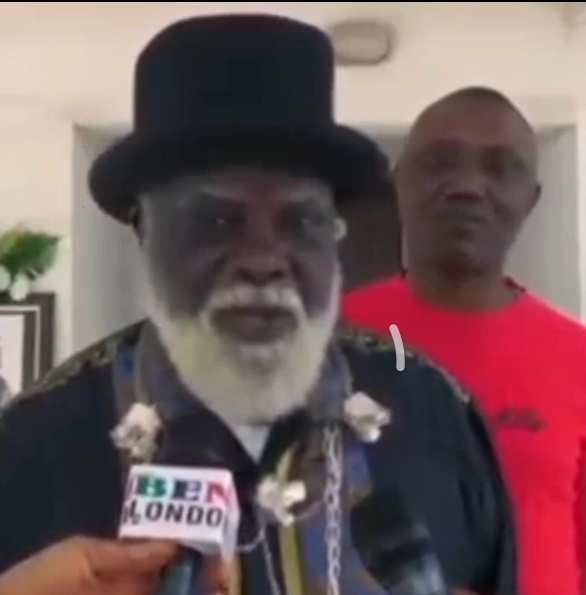News
Don’t ignore depression in children, experts tell parents

Don’t ignore depression in children, experts tell parents
By Francesca Hangeior
While it might be normal for children to feel sad or be in a bad mood sometimes, it, however, calls for concern if such moods last for weeks or longer, especially when there are other changes in a child’s behaviour, as it might be depression.
Physicians say parents with children battling persistent depression should ensure they receive appropriate treatment because if left untreated, it may affect the physical and mental development of the child.
According to the experts, evidence currently indicates that depression affects one to three per cent of children before puberty.
Experts say depression in children is a mental health problem that affects their thinking, mood, and behaviour
The senior health professionals said early-onset depression is a treatable condition, and treatment is urgent for several reasons.
They warned that if ignored, early-onset depression can recur through life, and is associated with later vices like criminality, substance abuse, and suicidal behaviours.
The experts, affirmed that depression in children warrants special attention because the disorder can interfere with the normal course of learning and development, impede education and the establishment of relationships, and can disrupt family life.
A Psychiatrist and Medical Director of the Federal Neuropsychiatric Hospital, Aro, Abeokuta, Ogun State, Dr Paul Agboola, said depression if persistent and not taken care of in children over some time, could affect the functioning of organs of the body such as the heart, kidney, liver, lungs, and even the blood vessels.
Further citing the various risks associated with depression in children if left untreated, Agboola, who is also the provost of the hospital, advised parents with children suffering from clinical depression to take them for treatment.
The mental health expert also said if depression in children is not treated, it could continue into adulthood.
He identified sudden low interest in school, bed wetting, reduced appetite, weight loss, and not being interested in things around one as some of the signs of depression in children.
On the causes, the psychiatrist said child abuse, family history of mental disorder, environmental factors, traumatic side effects, war, and murder of parents could lead to depression in children.
The United Nations Children’s Fund says depression can happen as a reaction to something like abuse, violence in school, the death of someone close, or family problems like domestic violence or family breakdown.
“Someone might get depressed after being stressed for a long time. It can also run in the family. Sometimes we may not know why it happens” UNICEF states.
The mental health expert also said that depression affects every other part of the body, stressing that the complications of depression in children are quite enormous.
He noted, “Prolonged depression in children that is not treated can over time affect the way other organs of the body function. It can affect the way the heart functions, and it can affect the kidneys over some time.
“In depression, it is not only when the child commits suicide. The impact of depression if it is long-lasting and not treated, can affect the way other organs of the body function.
“The scenario is this, the brain is low and if that child is not eating and sleeping, and nothing is done, the quality of life of that child will be affected.”
Agboola also stated that depression could reduce the production of hormones in the body.
“Now, the hormones of the body will also be affected. So, hormone production will be reduced and if hormone production is reduced, then those areas in which the hormones serve will be affected.
“So in other words, depression, if not taken care of and is prolonged, can affect other functions of the body.
“The brain controls the body. Now, if the brain is not being fed with food — protein, carbohydrate, fat and oil, and essential minerals, the brain will not develop well.
“Now, with the brain not developing well, automatically, over a long period, it will affect other organs of the body”, he said.
According to Agboola, depression is a persistent state of low mood.
He noted that depression is common in children but not as common as it is in adults.
The provost, however, said depression may be missed when it occurs in children because their verbal fluency might not be able to express their emotional state like adults.
But he said mental experts can pick the signs of depression in children even though they are not classic like is seen in adults.
“So, it is very easy for people around that person not to know that this person is depressed. The symptoms are not classical like what you see in adults.
“However, professionals like us can pick those signs in children.
“Parents, if they are not observant, could miss out on those things in that child. Depression in children if it is not taken care of could lead to something else. The child will not be able to develop properly in terms of age, height, and weight”, he added.
The psychiatrist said depression in children could be treated using different methods including storytelling and the use of pictures.
He said, “The treatment and management of children with depression involve a lot of workers including psychiatrist’s psychologists, social workers, nutrition experts, and speech therapists.”
A Consultant Paediatric Haematologist and Oncologist at the Lagos University Teaching Hospital, Idi-Araba, Professir Edamisan Temiye, cautioned parents against using starvation as a form of punishment for children, warning it could lead to depression.
Temiye said it is wrong for parents to deprive their children of food to serve as a form of punishment for an offence.
The child health expert also cautioned parents to stop linking rewards or punishments to food.
He also warned that using harsh and violent measures to punish children would make them depressed and exhibit violent behaviour.
News
Tension In Edo Community As Gunmen Abduct Catholic Priest, Seminarian

By Kayode Sanni-Arewa
There’s fear in Iviukhua community, Etsako East Local Government Area of Edo State following the abduction of a Catholic priest and a seminarian by unidentified gunmen.
Rev. Fr. Philip-Mario Ekweli, the Parish Priest of St. Peter’s Apostle Catholic Church, and Bro. Peter Andrew, a seminarian, were reportedly kidnapped Monday night when assailants stormed the church premises.
The attack, which occurred around 10:30 pm, has left residents in a state of fear and anxiety.
As of Tuesday morning, no group has claimed responsibility of the incident, and there has been no word from the kidnappers regarding their demands.
Reports say local authorities and security forces have launched an investigation and are actively working to secure the release of the victims.
The abduction has ignited widespread concern among the Christian community and beyond, with many decrying the worsening security situation in the community.
According to a source, due to this negative incident, members of the Catholic Diocese of Auchi, to which the parish belongs, have intensified prayers for the safe return of the clergymen, while community leaders have called for urgent intervention by security agencies.
Contacted, the Edo State Police Public Relations Officer, (PPRO), Moses Yamu said a press statement would be released soon regarding the incident.
News
Police clarifies on death of ex-NIS boss, says his body was found in hotel

By Kayode Sanni-Arewa
hotel after receiving a female.
The police further explained that he did not die in the hands of kidnappers as widely reported by the media.
This was contained in a statement signed by SP Josephine Adeh, spokesperson of the command stating that:
“In light of the recent reports alleging that retired Comptroller General of the Nigerian Immigration Service, David Shikfu Parradang, was kidnapped and subsequently killed, we wish to clarify the facts surrounding this incident to ensure accurate information is disseminated to the public.
On March 3, 2025, at approximately 12:00 PM, Mr. Parradang arrived at Joy House Hotel, Area 3 Junction, driving a black Mercedes Benz. He checked into the hotel, paying a sum of Twenty two thousand naira (N22,000) for one night’s stay.
Shortly thereafter, he directed the hotel room attendant to escort a female guest who had come to visit to his room.
This lady left the hotel premises around 04:00PM of the same day.
Mr. Parradang did not exit his room after the lady left. Around 04:00 AM of 04 March 2025, a friend who is a military officer, concerned for his wellbeing, traced him to the hotel.
Upon arrival, the hotel receptionist and the officer proceeded to his room, where Mr. Parradang was found deceased, seated in a chair.
The Durumi Police Station was notified and officers promptly arrived at the scene, secured the area, took photographs, and collected all relevant evidence to preserve the integrity of the crime scene.
The body has been transferred to the National Hospital for necessary procedures, and hotel staff are currently cooperating with Police investigations.
Effort is in top gear to effect the arrest of the lady.
We urge the public and media outlets to refrain from spreading unverified information, including claims of kidnapping, that may incite fear or panic.
The FCT Police Command is committed to conducting a thorough investigation to uncover the circumstances surrounding Mr. Parradang’s death. We appreciate your cooperation and understanding as we work to ensure justice is served.
News
Reps Summon Labour Minister Over Failure To Constitute NSITF Board

-

 Politics21 hours ago
Politics21 hours agoLP snubs NLC interference, turns down merger
-

 News11 hours ago
News11 hours agoS#exual harassment: Akpabio has no right to intimidate elected female senators
-

 Metro20 hours ago
Metro20 hours agoPolice rescue abducted officer in Abuja
-

 News21 hours ago
News21 hours agoUS based foundation offers detained Anambra witch doctors legal services
-

 Entertainment11 hours ago
Entertainment11 hours agoSad! Dolly Parton’s husband Carl Dean is dead
-

 News10 hours ago
News10 hours agoPDP’s failure, Tinubu’s reforms have paved way for APC in Delta, says Omo-Agege
-

 Foreign20 hours ago
Foreign20 hours agoPope suffers two respiratory crises, undergoes emergency treatment
-

 News9 hours ago
News9 hours agoAlleged Breach Of Act: FCCPC Set To Arraign MTN CEO, Others







